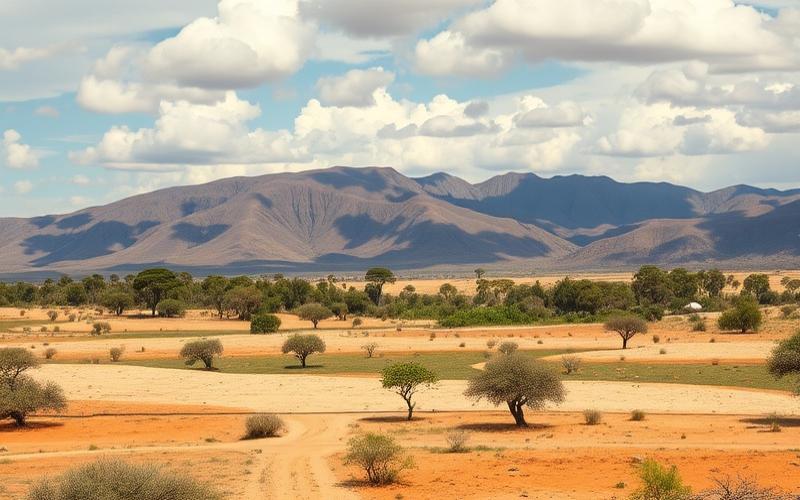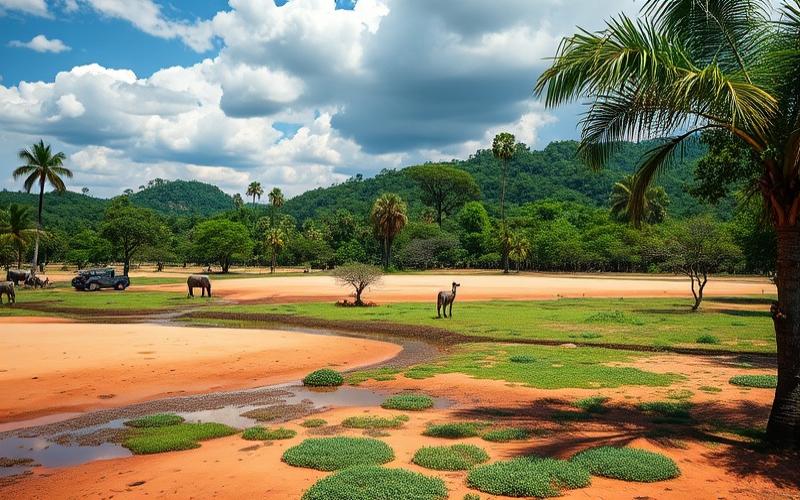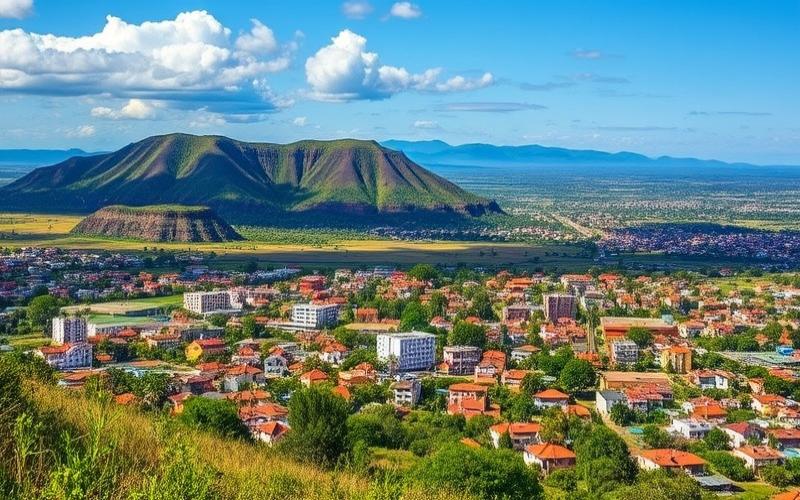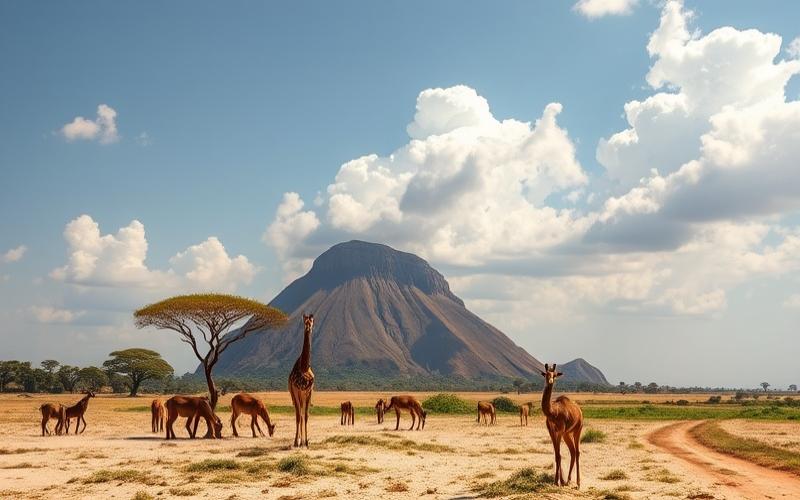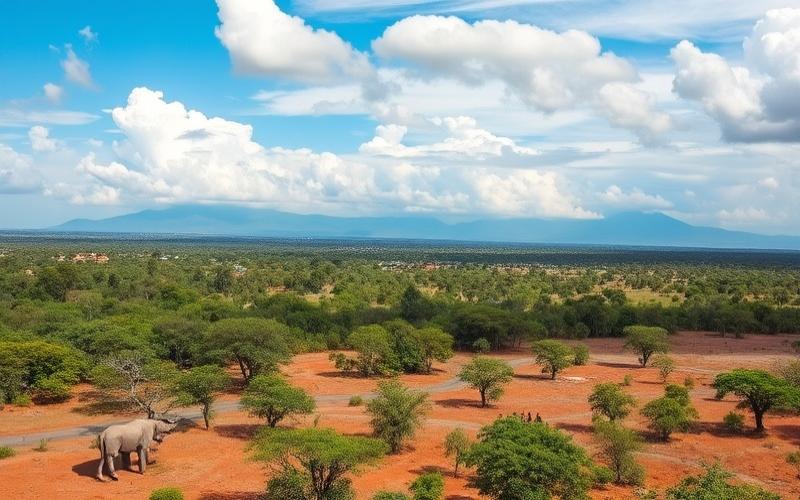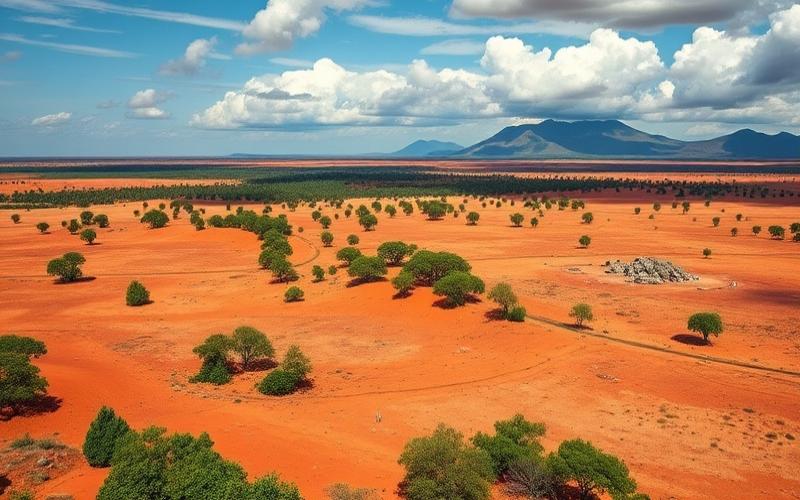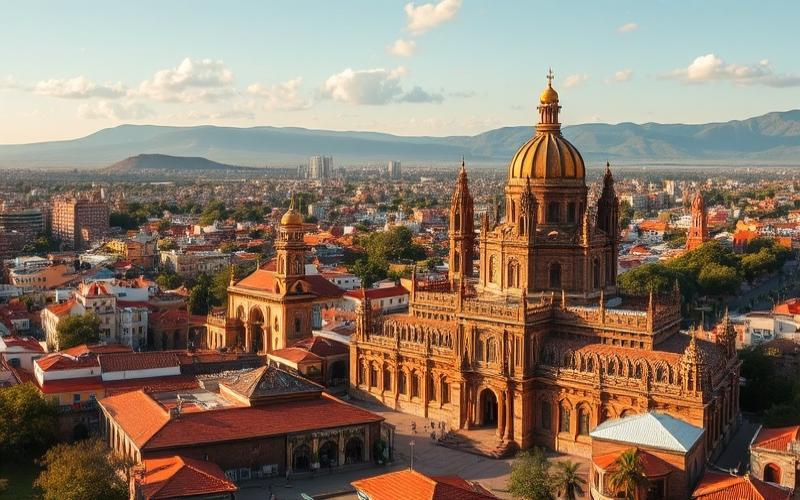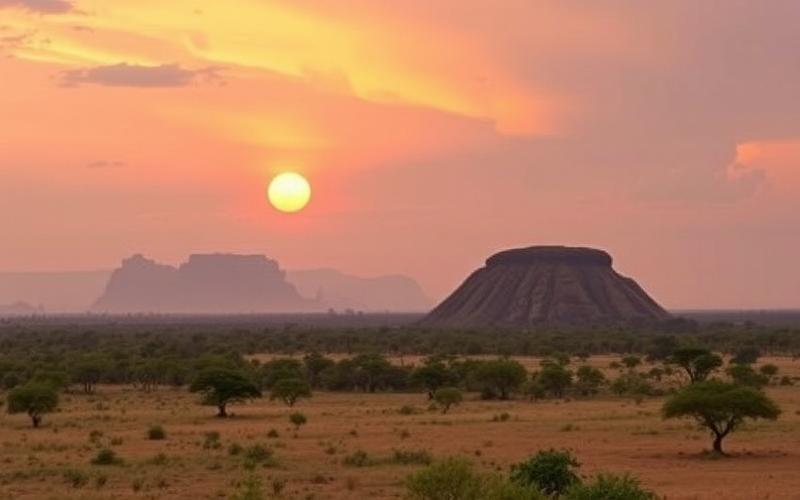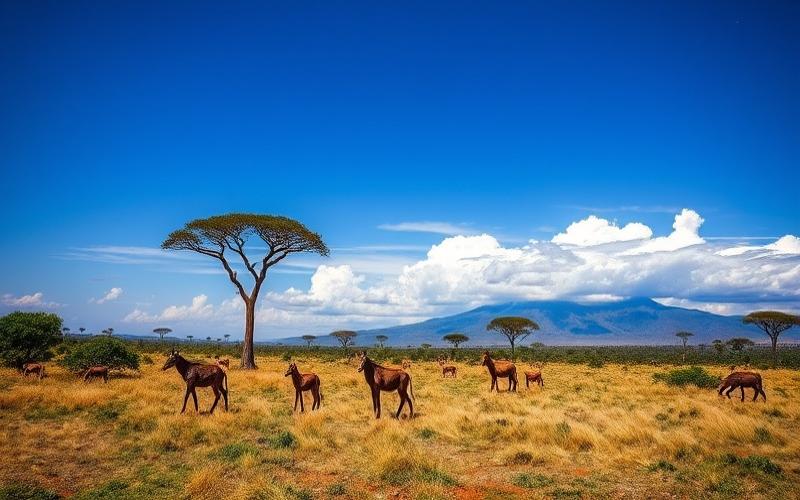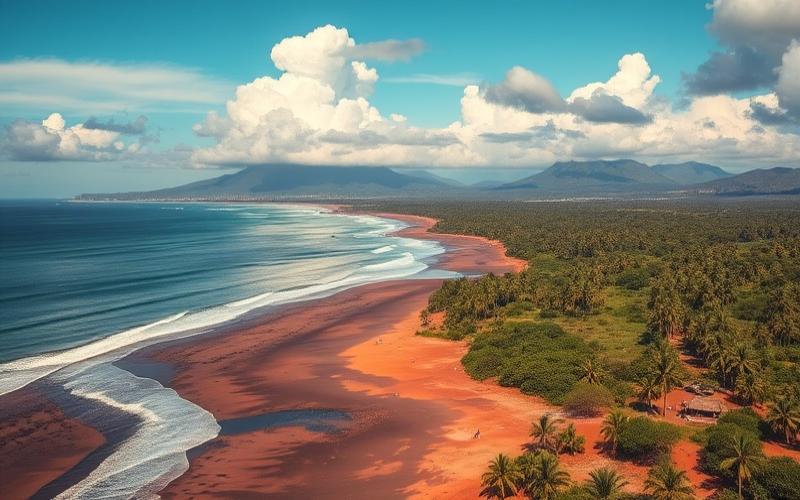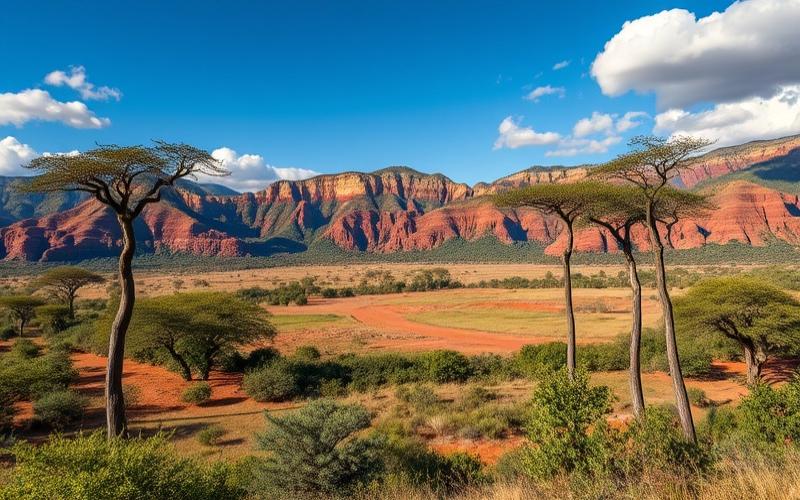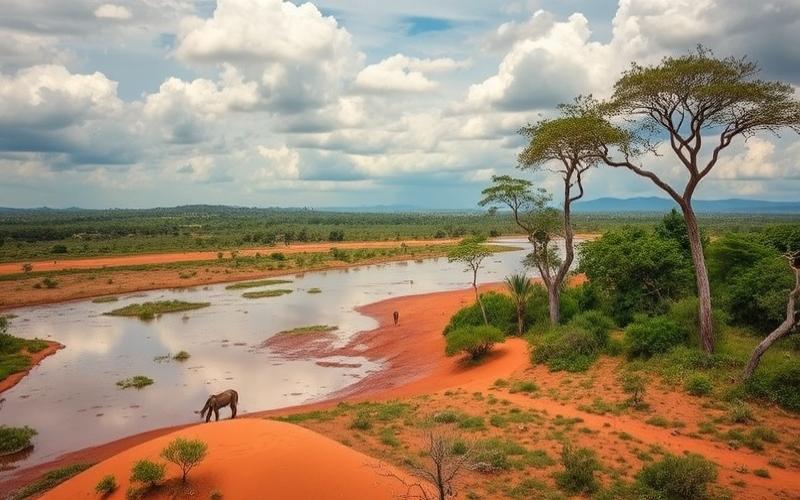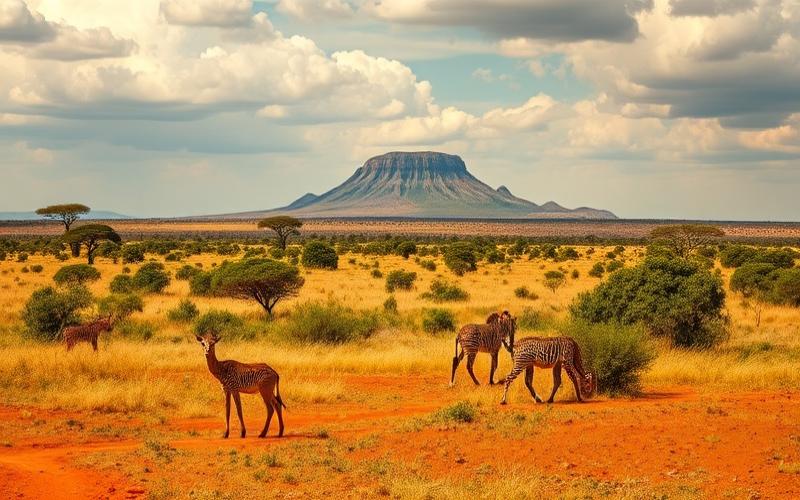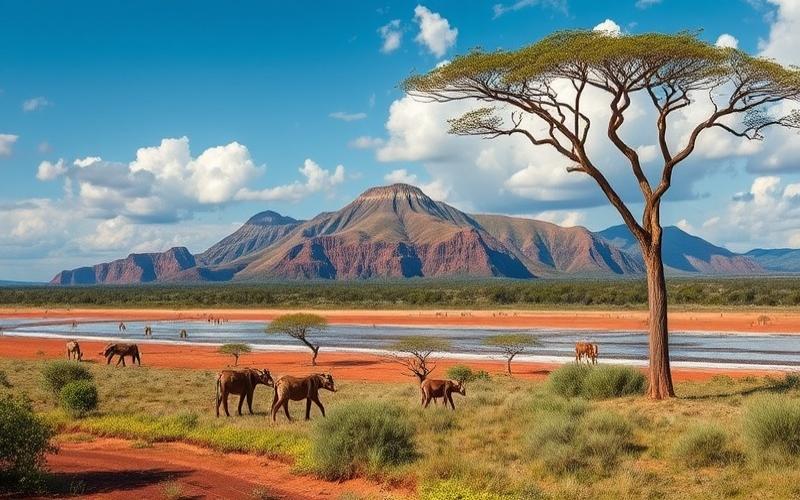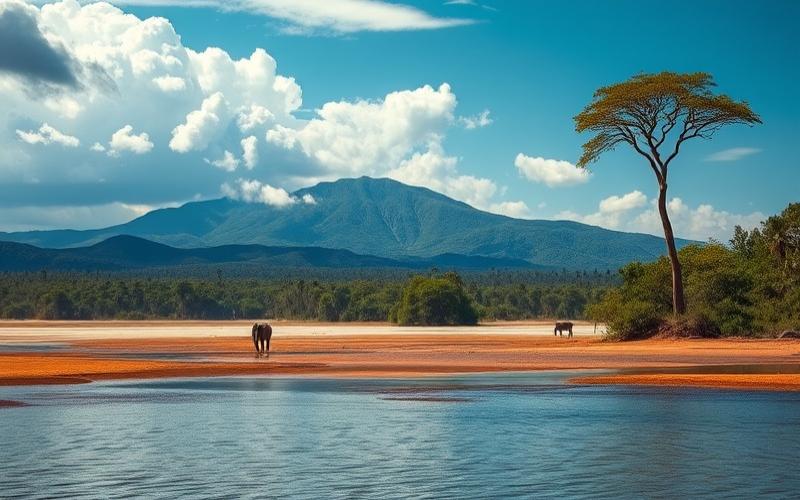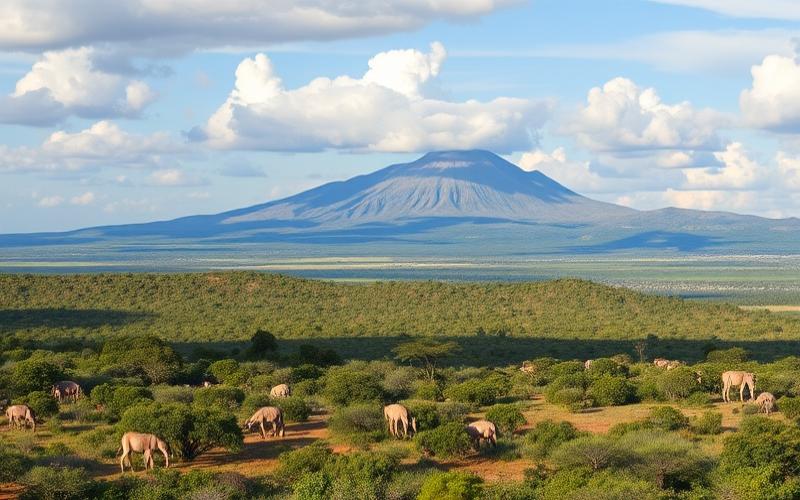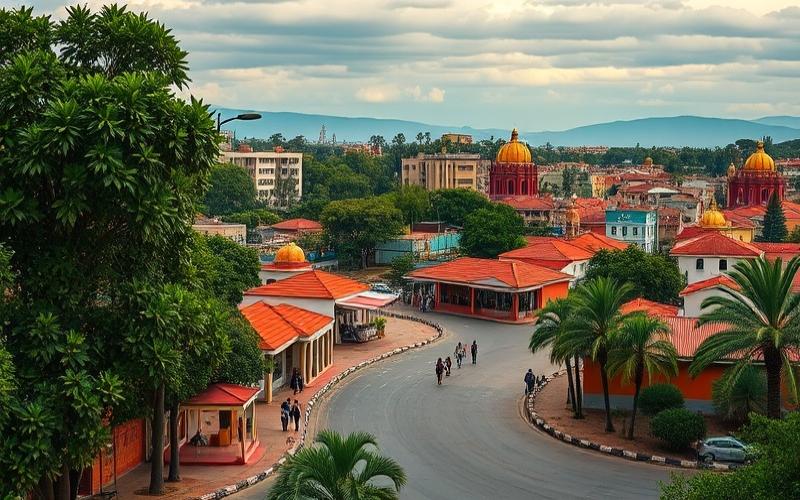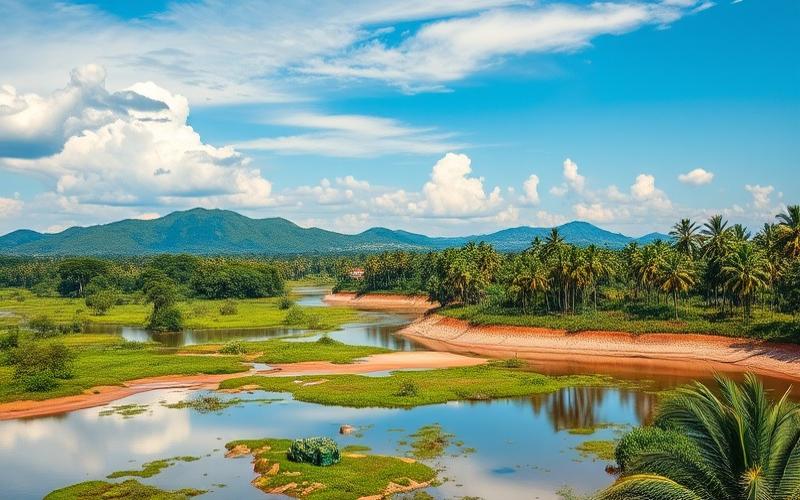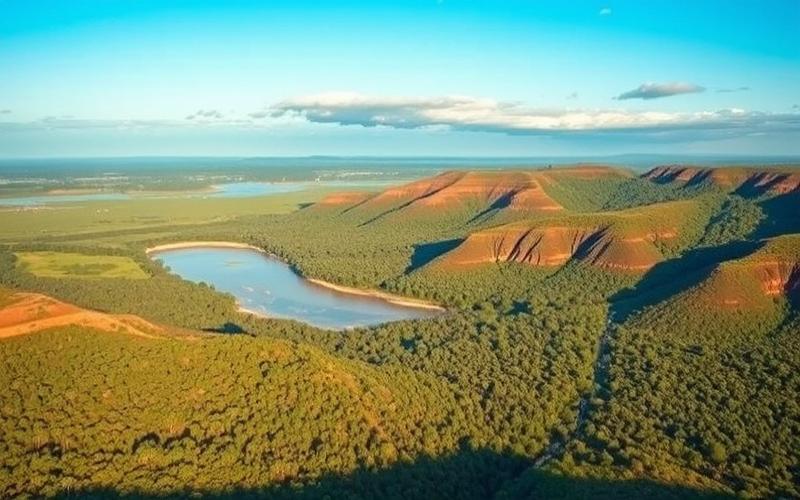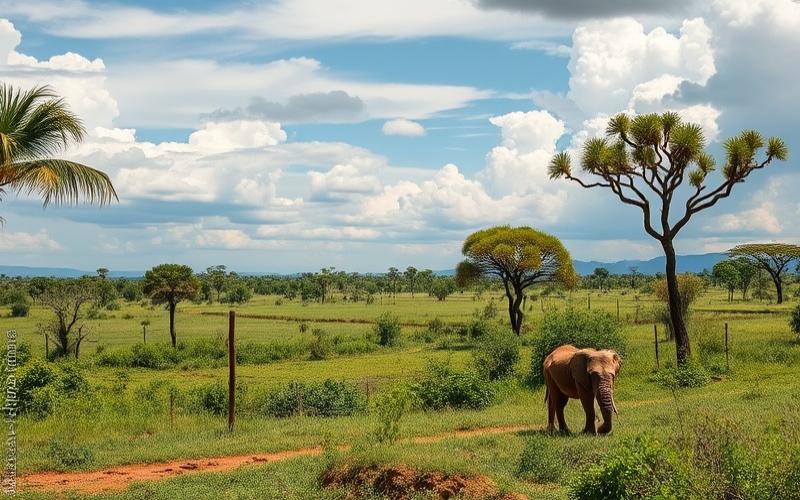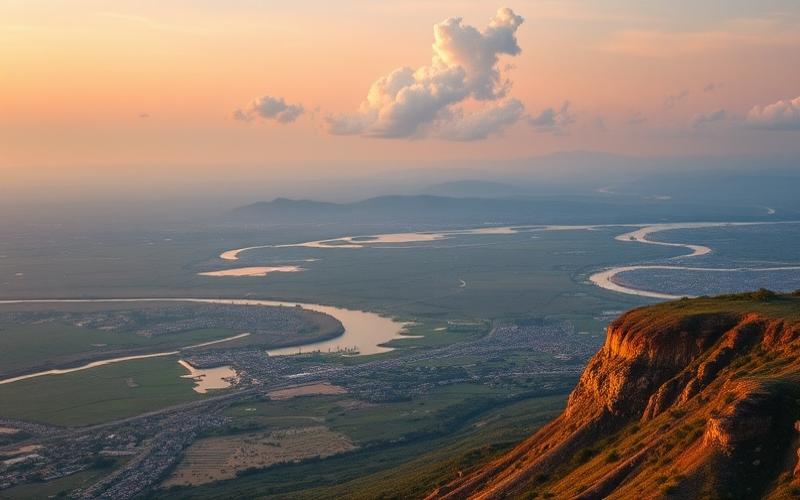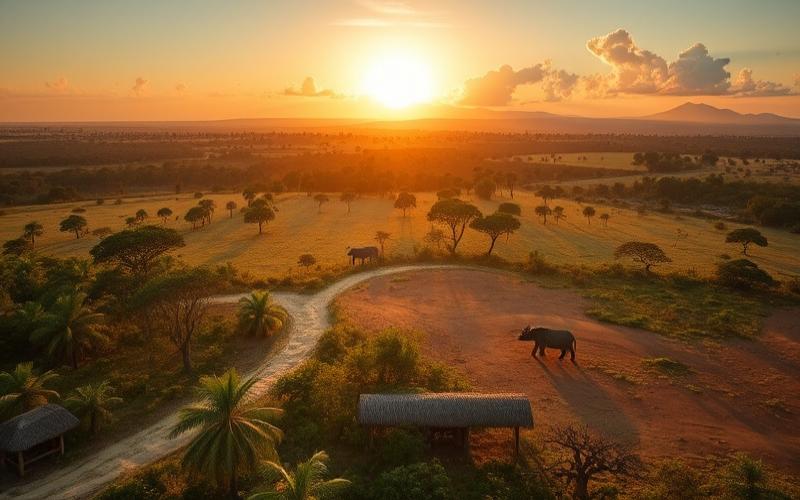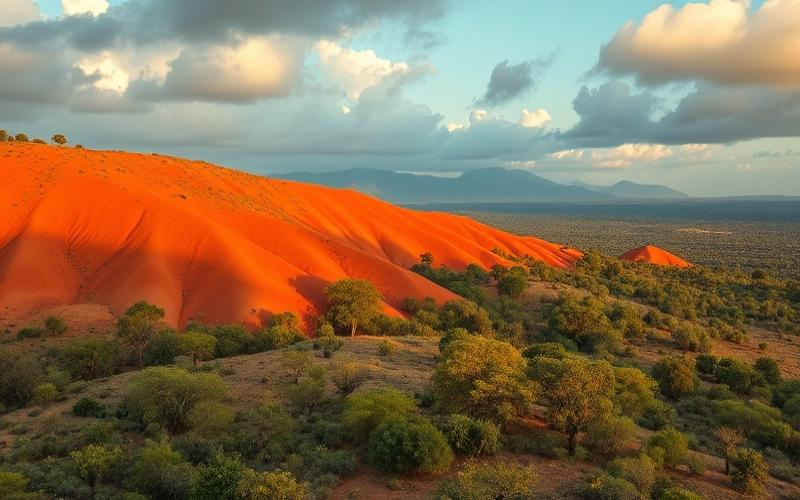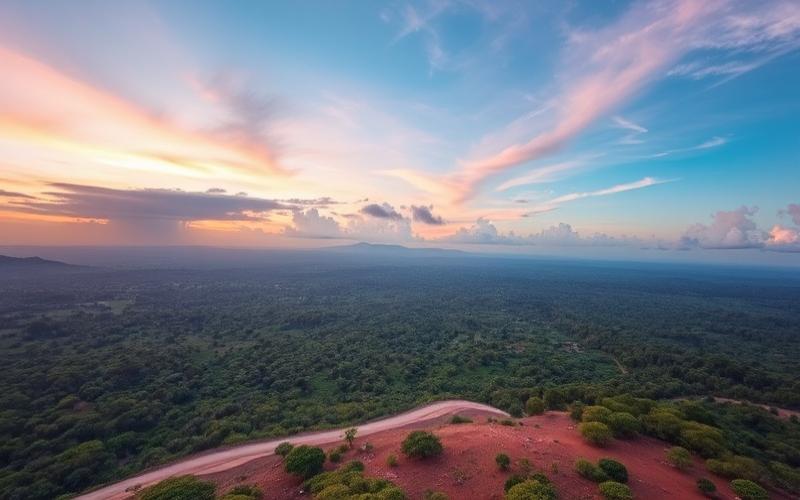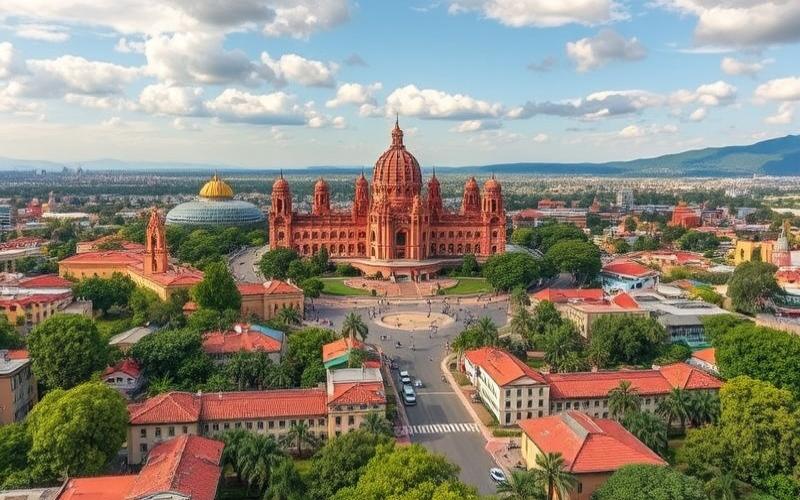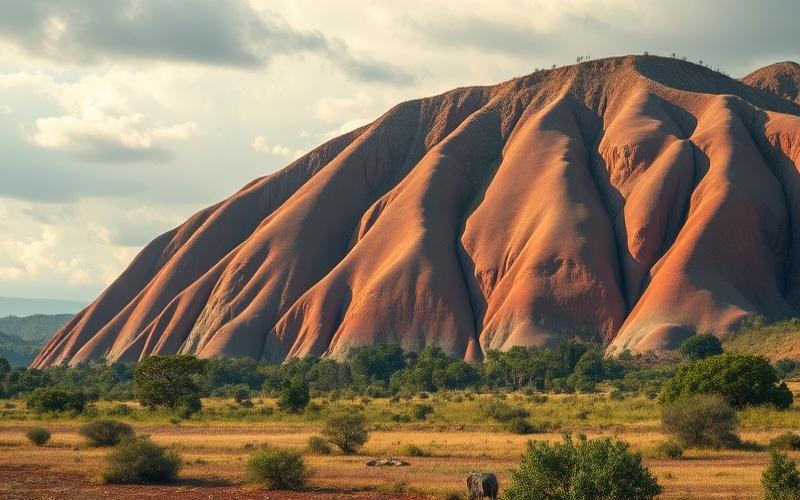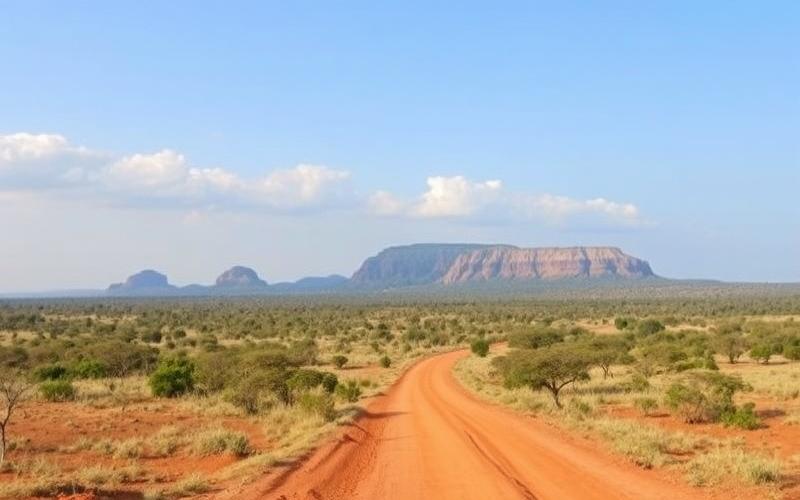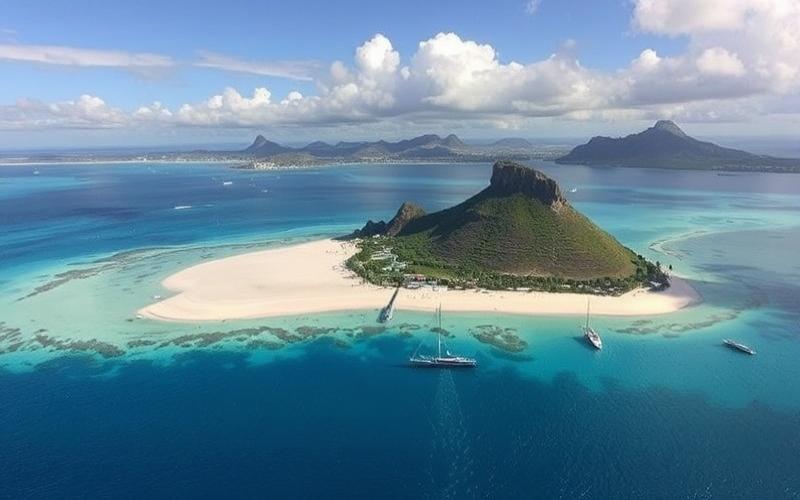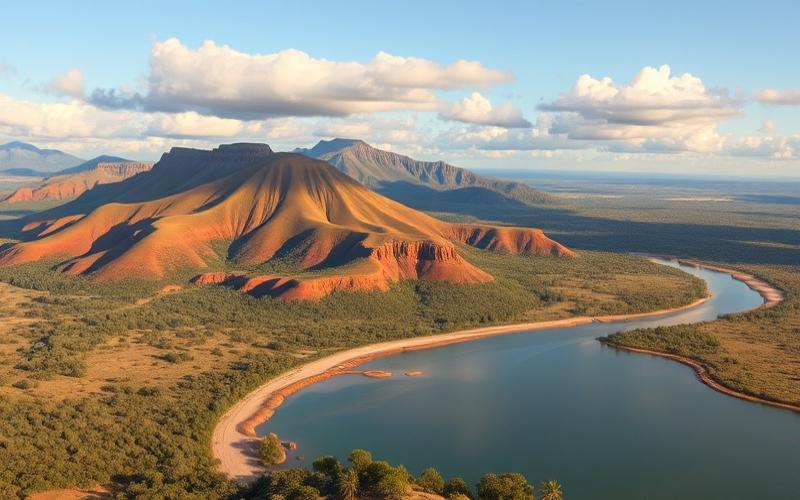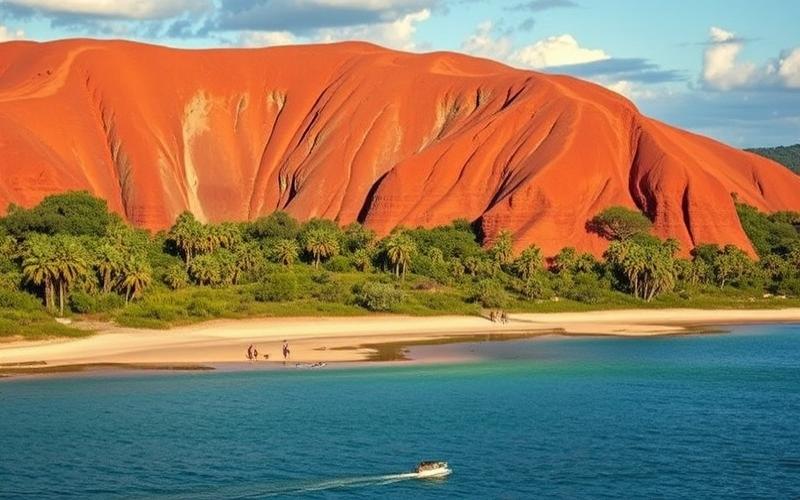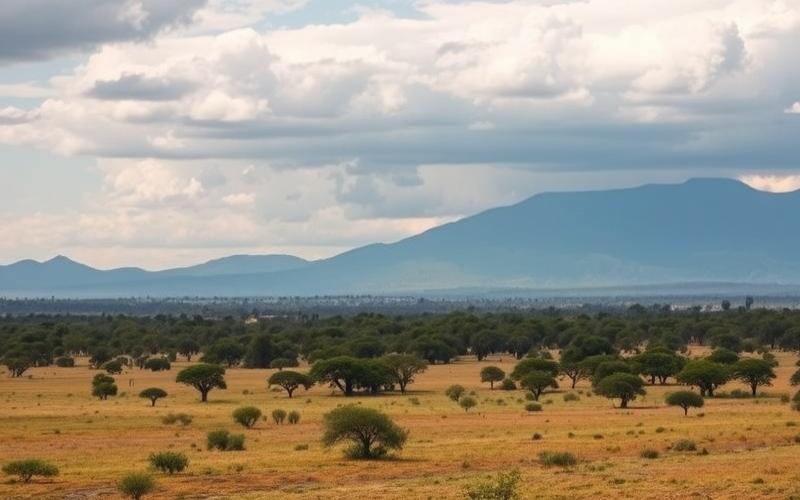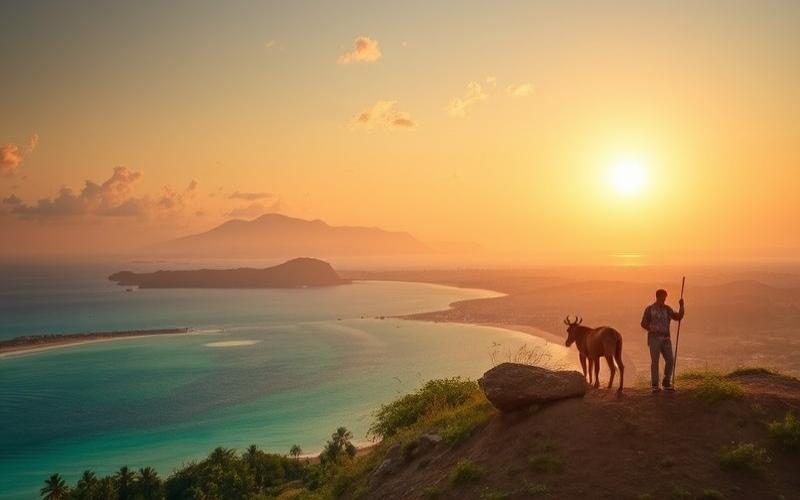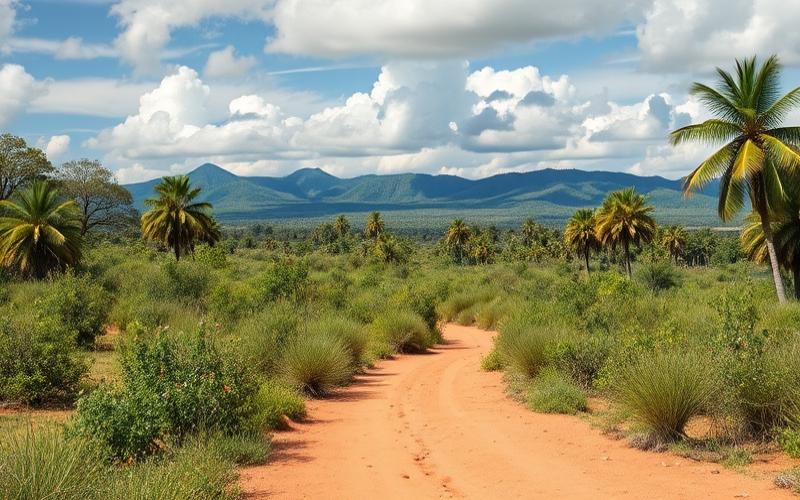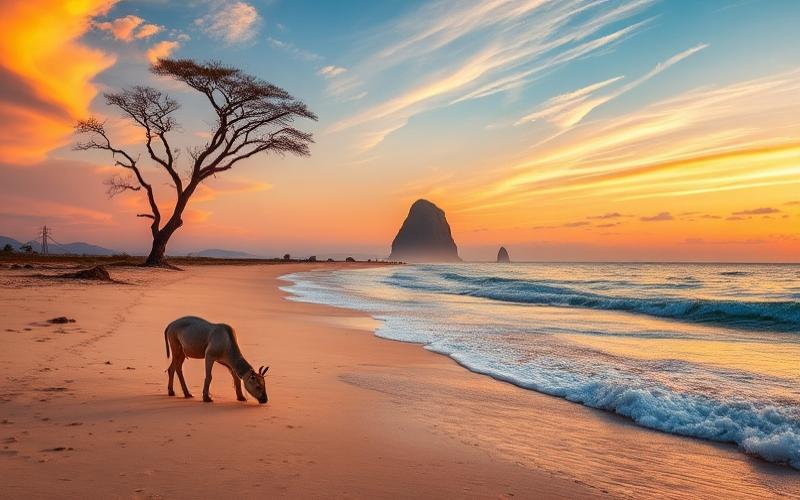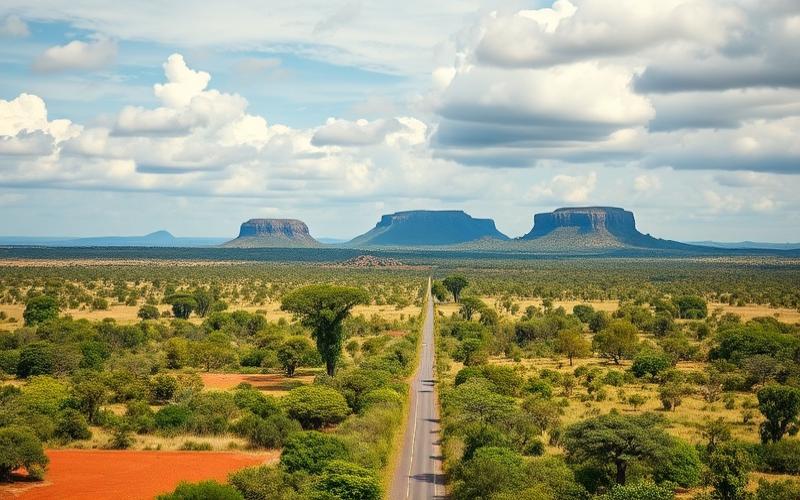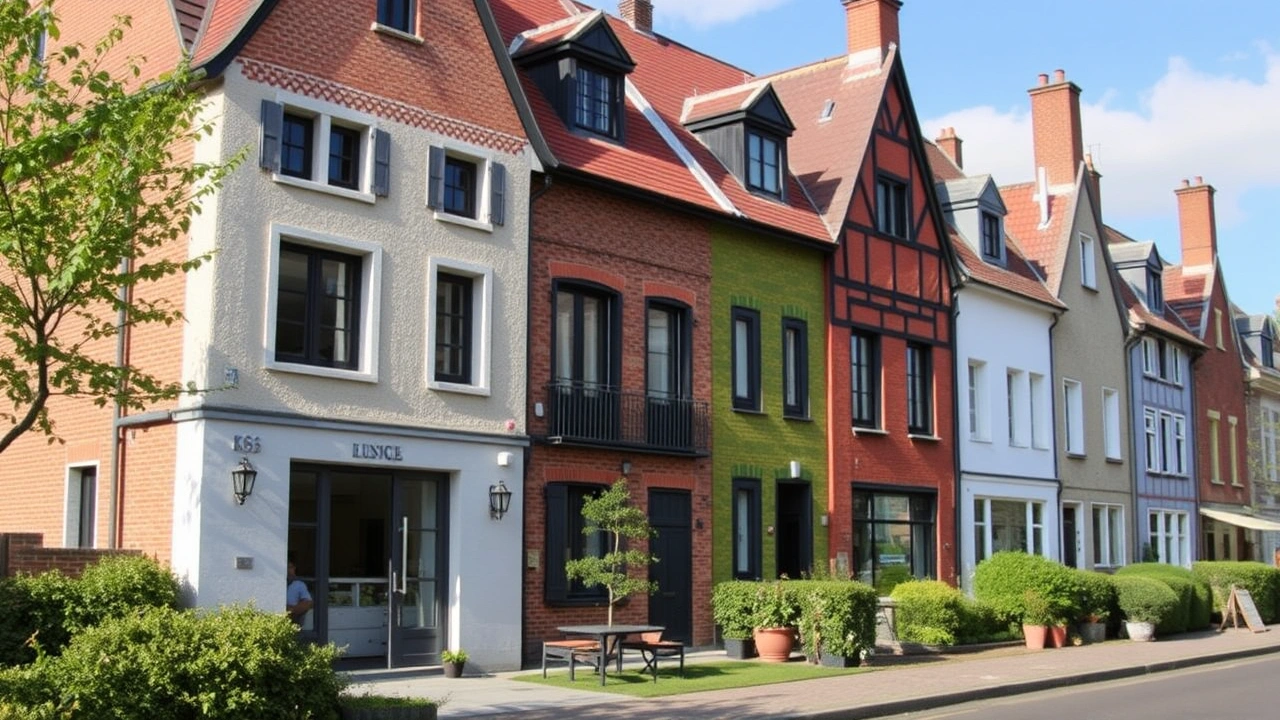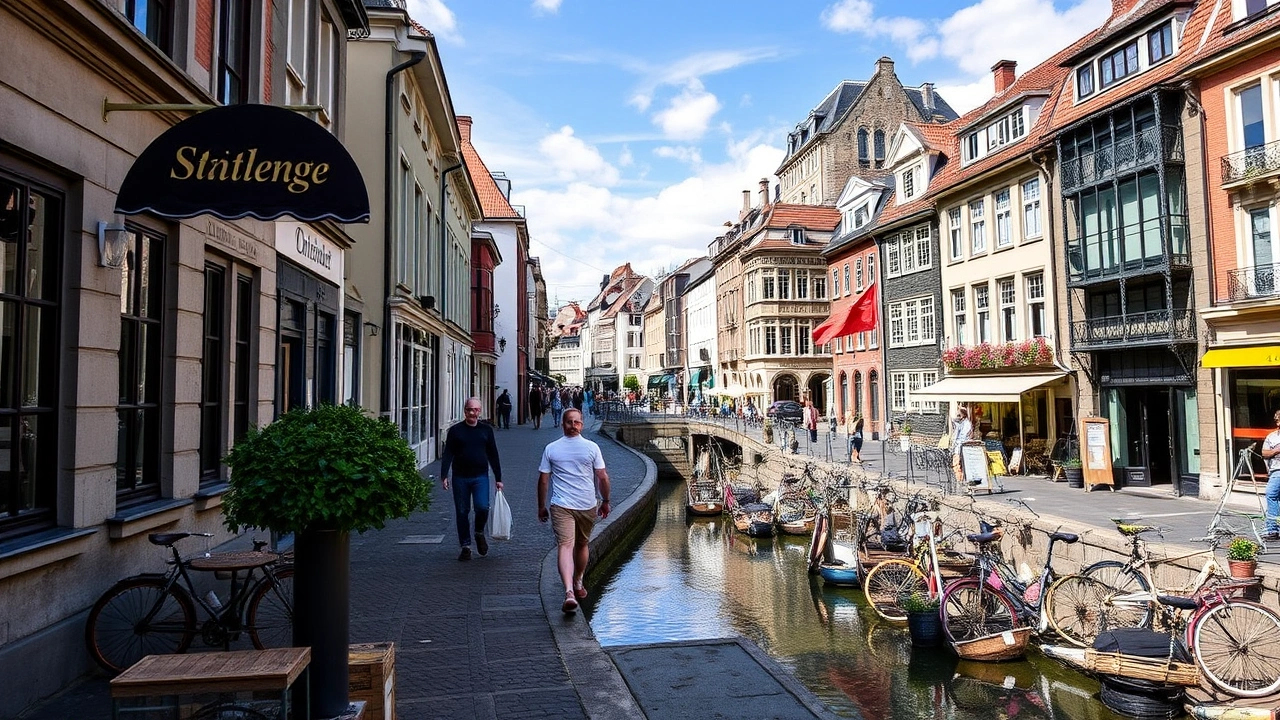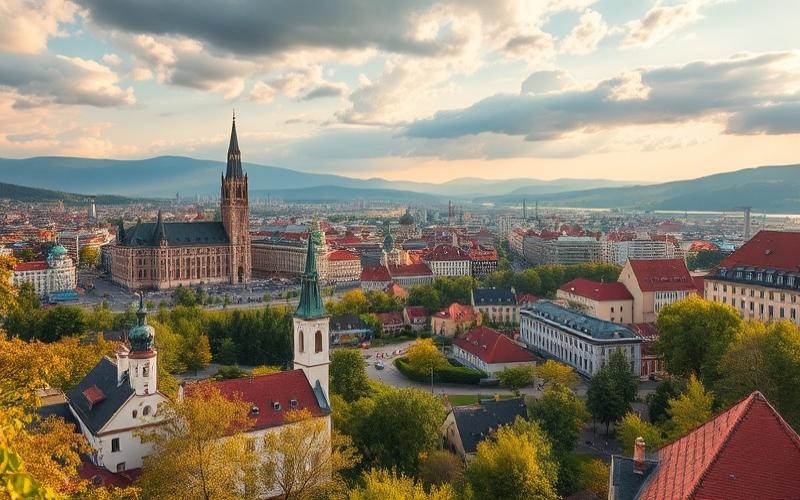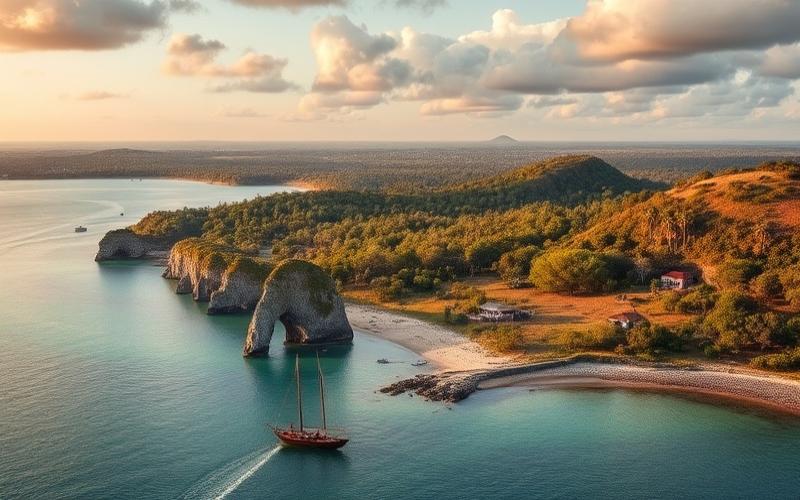
 Published on and written by Cyril Jarnias
Published on and written by Cyril Jarnias
Madagascar, a Welcoming Land for French Expatriates
Madagascar, an island as fascinating as it is complex, has been attracting numerous French citizens for decades in search of a unique and enriching life experience. Among them, a community of expatriates has chosen to settle there more permanently, becoming owners of iconic places and engaged in local life.
This article explores their captivating testimonies and reveals the multiple facets of their integration in this country with priceless cultural riches. These authentic stories immerse us in the heart of their journeys, revealing the challenges and successes encountered in this land that is both welcoming and demanding.
Good to Know:
Madagascar is the 5th largest island in the world with exceptional biodiversity and a unique blended culture.
Journey of a French Expatriate in Madagascar: From Arrival to Settlement
To settle in Madagascar as a French expatriate, several administrative procedures are unavoidable upon arrival on the Big Island.
Administrative Procedures Upon Arrival
- Passport valid for at least 6 months after the entry date.
- Mandatory visa for any length of stay:
- For a tourist stay of less than 90 days: non-immigrant visa, usually obtained at the airport. For less than 15 days, it’s free (administrative fees of about 10 euros). Between 15 and 60 days, it costs between 35 and 40 euros depending on the chosen duration.
- For a stay longer than three months or for any paid activity (work, investment…), you must apply for an immigrant visa before departure or convert it on-site at the immigration service. Required documents: proof of sufficient resources, accommodation certificate or hotel reservation, explanatory letter of the reasons for the stay, criminal record extract, and recent medical certificate. The procedures can take several weeks; better to plan ahead.
| Visa Type | Authorized Duration | Approximate Price | Place of Issuance |
|---|---|---|---|
| Tourist | 90 days | ~100 € | Consulate/embassy then immigration |
First Impressions and Cultural Shocks
Arrival in Madagascar is often marked by great cultural and social diversity. The first steps in the bustling streets of Antananarivo surprise with their constant activity: zebus pulling carts in the heart of dense urban traffic, colorful markets overflowing onto sidewalks… The pace slows compared to major French cities: you quickly discover that “mora-mora” (“slowly-slowly”) is not just an expression but a true local way of life.
The cultural shock is also felt in some practical aspects: frequent power outages or occasional difficulties in administrative procedures require patience and rapid adaptation. At first, paying for purchases without widespread banking terminals can be confusing; negotiating at the market quickly becomes an essential skill.
Housing Search and Settlement
Finding suitable housing often constitutes the main challenge of the first weeks:
- Priority criteria for expatriates:
- Security (guarded residential neighborhoods)
- Proximity to international schools or professional locations
- Reliable access to drinking water and electricity
- Common challenges:
- Limited offers in long-term furnished rentals
- High security deposit requested by some landlords
- Notable differences between online real estate listings/reality observed during visits
Personal anecdote: during my first visit to rent a “fully equipped” house, I discovered that “hot water” meant… only in the kitchen! The shower remained cold – which gave me my first Malagasy cold.
Cultural Adaptation & Lifestyle
Integration involves both learning a few Malagasy words and adopting local habits:
- Tasting culinary specialties like ravitoto (crushed cassava leaves) even if their appearance intrigues.
- Accepting that schedules are flexible; understanding that a set appointment is never truly precise.
Malagasy friendliness helps a lot: curious but warm neighbors quickly offer practical advice (where to buy fresh fruit without being cheated), spontaneous invitations over sweet local coffee…
Useful Resources & Networks Facilitating Settlement
To settle in well:
List of recommended resources:
- Facebook groups dedicated to French/multinationals based in Madagascar (to exchange housing/job tips)
- French-speaking associations present in each major city
- French embassy/consulate – valuable administrative relay
Practical advice from experience:
- Anticipate all official procedures before arrival.
- Prioritize word-of-mouth to find your first reliable housing.
- Bring universal electrical adapters from the start!
- Keep humor & patience in the face of daily uncertainties (“it will come” always ends up arriving).
Experiencing your first expatriation in Madagascar requires adaptability but offers an unforgettable human experience where every day brings its share of unexpected discoveries!
Good to Know:
Upon arrival in Madagascar, French expatriates must navigate a maze of administrative procedures, such as obtaining a temporary stay visa, often confusing due to the slowness of local processes. The first weeks are marked by cultural shock, notably due to the intense heat and the island’s more comfortable pace of life. The housing search, a primary concern, can prove tricky with limited choices in neighborhoods favored by foreigners, such as Ivandry or Ambatobe, where security and proximity to international amenities are prioritized. Expatriates share anecdotes about the warm welcome from Malagasy people and the necessity of learning a few Malagasy words to integrate. To facilitate settlement, relying on networks like Expat.com or Madagironaute for experience exchanges and practical advice, such as opening a local bank account or choosing suitable schools for children, proves invaluable.
Living in Madagascar: Reviews and Experiences of French Expatriates
Testimonies of French Expatriates in Madagascar
“As a new arrival, Tamatave seemed dirty and poor to me.” This is how Annabelle, an expatriate with her family after a stay in Montreal, describes her first impressions. Her arrival was marked by significant cultural shock: deteriorated streets, waste management problems, oppressive heat and humidity, and surprising traffic for a city of this size. Even the French lycée seemed in poor condition, making her first month quite difficult. Fortunately, the presence of the beach, the Indian Ocean, and three supermarkets somewhat eased this transition.
For Cécile, an expatriate teacher, arrival in Tananarive was “epic,” occurring during border closures due to COVID-19. Notified only a few hours before her departure, she could count on support from her institution’s administration and the embassy. Colleagues temporarily hosted her until she found permanent housing.
Daily Challenges and Necessary Adaptations
- Frequent water and electricity cuts
- Significant pollution in Tananarive (recommended to live in the heights)
- Absence of road signage and accident risks
- Confrontation with extreme poverty and begging
A French expatriate testifies to the difficulty of knowing how to react to begging: “It’s super hard to know how to react to that because at the same time you want to give them money and at the same time it doesn’t help them sometimes.”
Positive Aspects and Integration
Despite these challenges, life in Madagascar presents several advantages for French expatriates:
| Advantages | Details |
|---|---|
| Communication | French is widely spoken on the island |
| Community | Presence of a significant French community |
| Conveniences | Availability of French products (notably in Tananarive) |
| Culture | Active French institute offering cultural activities |
| Gastronomy | Numerous restaurants allowing preservation of French culinary habits |
Cécile even mentions the presence of a Super U, allowing access to familiar products.
Tips for a Successful Expatriation
- Be aware of the island’s poverty before arriving
- Slow down your pace and adopt the local “Mora Mora” philosophy (slowly, slowly)
- Adapt to variable infrastructure depending on regions (Internet and 4G work rather well)
- Plan alternative solutions during water and electricity cuts
“Be aware of the island’s poverty. Slow down your pace: here it’s the country of Mora Mora ‘Slowly, slowly’.”
Expatriation in Madagascar represents a contrasting experience, mixing significant challenges and enriching discoveries. The testimonies reveal the importance of adequate preparation, adaptability, and open-mindedness to transform this adventure into a positive and fulfilling experience.
Good to Know:
French expatriates living in Madagascar describe enriching cultural integration, although the language barrier can sometimes pose challenges; some have recommended taking Malagasy lessons to facilitate interactions with the local community. Daily life is often marked by the warm welcome of Malagasy people, but expatriates also note the necessity to adapt to infrastructure uncertainties, like frequent power cuts. Economically, they see growth potential, although investing in real estate requires being well-informed about local laws and consulting an experienced notary to avoid bad surprises when buying properties. Beyond opportunities, the island’s natural beauty and more relaxed pace of life are highly appreciated aspects, even if some regret the administrative slowness.
Real Estate Acquisition in Madagascar: Testimonies and Practical Advice
“Buying in Madagascar was an incredible human and professional adventure, but not without obstacles. I quickly understood that you had to arm yourself with patience and a good dose of flexibility,” testifies Jean-Marc, a French expatriate settled in Antananarivo since 2019.
Challenges Faced by French Expatriates:
- Understanding the Local Market: Many expatriates highlight the lack of price transparency and the difficulty in obtaining reliable information about the actual condition of properties. Negotiation is an integral part of the process.
- Administrative and Legal Procedures: The Malagasy land system can seem opaque to a newcomer. Restrictions concerning foreign ownership often require resorting to emphyteutic lease (long-term lease up to 99 years) or creating a local company for purchases of undeveloped land.
- Complexity of Land Titles: Testimonies insist on the crucial importance of verifying the validity of the land title before any signing, some having discovered afterward that their property was subject to a dispute or not properly registered.
“Without my local lawyer, I could have lost my investment. He uncovered a problem with the title that would have cost me dearly,” recounts Claire, settled for five years on the east coast.
Practical Advice from Lived Experiences:
- Always use the services of a reputable local real estate agent as well as an independent notary.
- Systematically surround yourself with a lawyer specialized in real estate law to secure each step (title verification, drafting of deeds).
- Take the time to visit several properties to familiarize yourself with neighborhoods and understand sometimes significant price differences between urban and rural areas.
Practical Checklist for a Serene Acquisition:
- Evaluate several local real estate agents before any commitment
- Demand all supporting documents related to the property (recent land title, absence of debts)
- Plan extra time in your procedures (administrative delays often long)
- Seriously consider creating a local company for ambitious purchases
| Challenge Encountered | Recommended Solution |
|---|---|
| Legal Restrictions | Creation of local company/emphyteutic lease |
| Complex Land Titles | Thorough verification by lawyer/notary |
| Lack of Transparency/Prices | Active comparison + advice from local agents |
| Cultural Differences | Openness to dialogue – adaptation to customs |
Cultural Differences & Necessary Adjustments:
Expatriates note that procedures generally take more time than in France; you must learn to work with a different notion of time (“mora mora”). Trust is built progressively with Malagasy counterparts – always prioritize a respectful approach, avoid any rush in the purchase.
Memorable Anecdote:
Sophie shares having had to wait nearly two months between her first visit and the final signing because “each document had to be verified then re-verified by different administrations.” She strongly recommends integrating this temporality into your project to avoid unnecessary frustration.
Important Text:
The key lies in reliable local professional support – experienced real estate agents AND specialized lawyers are essential to secure your real estate investment in Madagascar.
In summary: acquiring property as a French expatriate in Madagascar requires administrative rigor, cultural adaptability, and a solid professional network to navigate this unique market serenely.
Good to Know:
For French people considering buying real estate in Madagascar, expatriate testimonies emphasize the importance of understanding the local market, often complex and very different from the French market. According to Michel, a resident in Tananarive for three years, resorting to a local real estate agent is essential to navigate administrative and legal procedures, as these professionals are better equipped to anticipate complications, notably in land transactions. Anne, settled in Nosy Be, advises paying attention to cultural differences, like the slower pace of negotiations and the importance of interpersonal relationships. She also highlights the necessary adjustments to adapt to local bureaucracy, suggesting preparing multiple copies of all documents. Camille found it useful to visit several properties with different agents to get an overview of prices and common practices. These experiences highlight the necessity of certain patience and a reliable local network to ensure the success of real estate acquisition.
Disclaimer: The information provided on this website is for informational purposes only and does not constitute financial, legal, or professional advice. We encourage you to consult qualified experts before making any investment, real estate, or expatriation decisions. Although we strive to maintain up-to-date and accurate information, we do not guarantee the completeness, accuracy, or timeliness of the proposed content. As investment and expatriation involve risks, we disclaim any liability for potential losses or damages arising from the use of this site. Your use of this site confirms your acceptance of these terms and your understanding of the associated risks.

